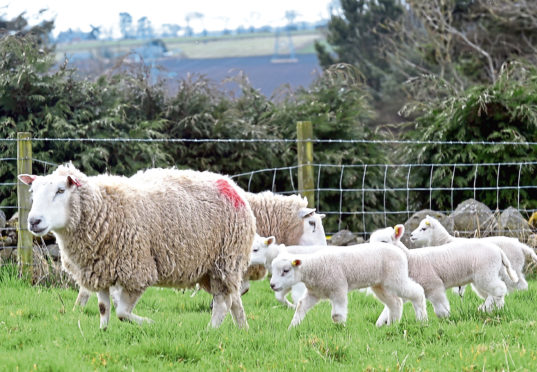Scotland’s chief veterinary officer, Sheila Voas, writes about looking after your animals during the coronavirus outbreak
Although Covid-19 is a virus which only affects humans, it has been a busy time for my team in the animal health and welfare division of the Scottish Government.
We want to ensure that the new rules, rightly put in place to protect public health and NHS capacity, do not lead to significant animal welfare problems.
It’s important to remember that Covid-19 does not affect domestic animals.
However, domestic animals, by definition, rely on us for many of life’s essentials, whether we’re feeding our livestock or looking after our pets.
In our work to handle this crisis, there are three key things that we must do.
We must protect human lives, safeguard animal welfare, and maintain the food supply chain during this period of uncertainty.
In agriculture, this is a busy time of year for farmers with the new crop of spring lambs either imminent or newly in place.
More lambs and calves put pressure on resources such as grassland. Many farmers are trying to move on the last of the previous year’s stock to make room for the new arrivals until the grass starts to grow properly.
For this reason, we have allowed livestock markets to continue in certain circumstances and for certain types of animals, provided social distancing measures are put in place to protect public health.
I was pleased to work with the Institute of Auctioneers and Appraisers in Scotland to draw up clear guidance for markets which will allow stock to be sold but with only very small numbers of people present, maintaining the social distancing rules.
My team has also been working with others to provide help and support for farmers who are ill and who cannot look after their livestock.
It’s wonderful that both Glasgow and Edinburgh vet schools and Scotland’s Rural College are supporting this initiative and encouraging their students to be a part of it.
For those with animals as companions, there has been confusion about what the “one walk a day” rule means for dogs, particularly in one-person households.
While one long walk may be enough exercise, dogs in particular will require to be taken out more frequently. This will not conflict with health guidance, as long as social distancing is maintained.
We’ve also had lots of questions about looking after animals away from home – either livestock on farms, or horses at DIY livery.
The answer is that people should continue to safeguard the welfare of their animals by ensuring they are fed and watered, and checked for problems at least daily.
It may be possible to share this on a rota basis with others nearby but visiting the animals yourself is fine so long as social distancing is maintained.
For anyone who has concerns about the health or welfare of their animals, vet practices are still providing emergency response and assistance, so I would encourage them to get in touch with their vet to discuss the appropriate action.
In some cases this will involve visiting the surgery at a specified time, in others home treatment may be advised or a visit arranged.
Please take the advice of your vet – they are best placed to provide care for your animals based on individual circumstances while still protecting human health.
I’d like to ask everyone to think ahead and plan how to ensure their animals are cared for, should they be unable to do so themselves.
This could involve making arrangements with friends, family or neighbours wherever possible, and if care is complicated it might be better to write down a plan.
Both RSABI and the SSPCA have said they are able to talk to anyone who has concerns about the care of their animals, in addition to their usual work.
These fantastic charities are already very busy, so it will help if as many people as possible could make their own plans, while recognising the important ongoing need for social distancing.
